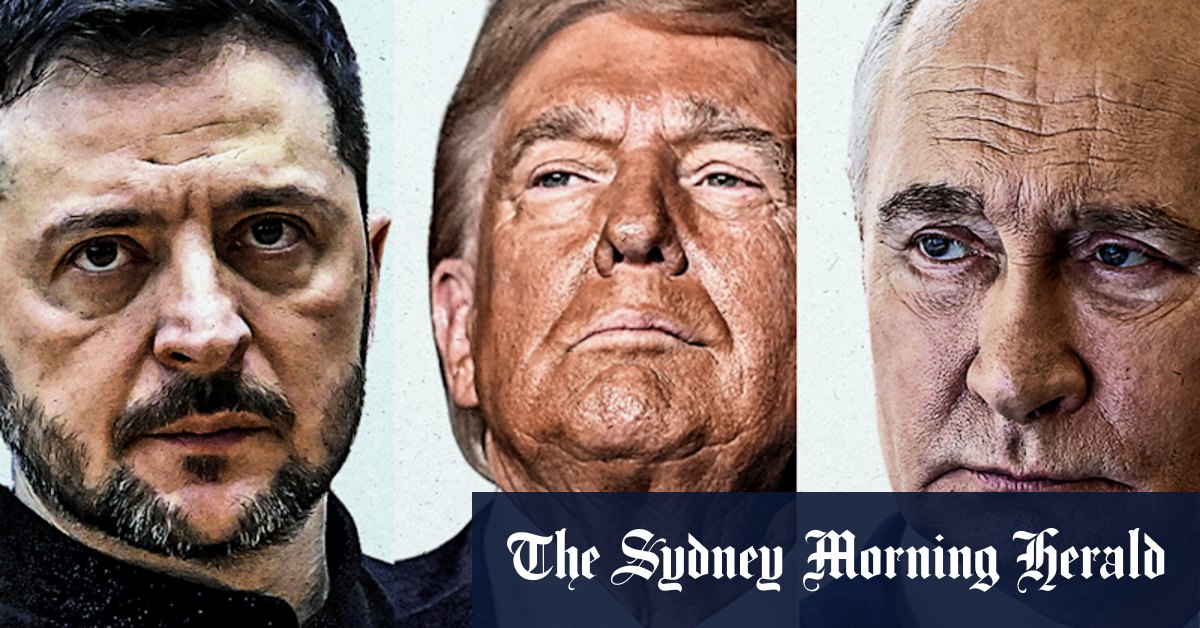
European leaders are set to meet with former U.S. President Donald Trump at the White House on Monday in an effort to showcase unity with Ukraine amidst the ongoing war with Russia. This high-stakes meeting aims to push forward discussions on how to bring the conflict to an end, following Trump’s controversial suggestion that Ukraine should cede some territory to secure peace.
Ukrainian President Volodymyr Zelensky, along with six key European leaders, will attempt to persuade Trump to impose sanctions and other penalties on Russia to help Ukraine negotiate a stronger peace deal. Russia, led by President Vladimir Putin, has resisted ceasefires and demands to surrender control of the territories it has seized in eastern and southern Ukraine, including the Donetsk, Luhansk, Kherson, and Zaporizhzhia regions.
Key European Leaders Join the Talks
The delegation attending the meeting will include French President Emmanuel Macron, German Chancellor Friedrich Merz, UK Prime Minister Sir Keir Starmer, Finnish President Alexander Stubb, European Commission President Ursula von der Leyen, and NATO Secretary General Mark Rutte. This move underscores Europe’s ongoing commitment to supporting Ukraine against Russian aggression.
Zelensky, who has remained firm in rejecting territorial concessions, maintains that Ukraine’s constitution prohibits such compromises. Speaking in Brussels on Sunday, he reiterated that negotiations should begin along the current frontlines, signaling a willingness for discussions but without undermining Ukraine’s territorial integrity.
Trump’s Stance on Ukraine: A Point of Contention
Reports indicate a challenging dynamic between Trump and Zelensky, especially after their February White House meeting where Trump openly criticized Zelensky’s rejection of a peace deal involving territorial concessions to Russia. Observers in Europe worry that Trump’s stance could divide allies or weaken Ukraine’s position in negotiations.
Trump recently expressed frustration on Truth Social, his media platform, accusing the media and political opponents of downplaying his prior successes in brokering international peace deals. “If I got Russia to give up Moscow as part of the Deal, the Fake News, and their PARTNER, the Radical Left Democrats, would say I made a terrible mistake and a very bad deal,” he wrote. Trump also claimed credit for ending multiple wars globally, though he did not specify which conflicts he was referring to.
Security Guarantees: The U.S. Role in Any Peace Agreement
The discussions are also likely to focus on potential U.S.-offered security guarantees for Ukraine. Top officials from Trump’s team have suggested these guarantees could resemble NATO’s Article 5, providing significant protection should Russia violate a peace agreement.
However, European leaders, including Macron, have expressed skepticism. Macron emphasized that Putin has a track record of breaking peace agreements, raising concerns about the enforceability of any deal. Similarly, U.S. Secretary of State Marco Rubio highlighted the importance of incorporating mechanisms to ensure compliance, given Russia’s history of dishonesty in diplomatic dealings.
The Bigger Picture
As the war between Russia and Ukraine continues to devastate the region, this meeting represents a critical juncture for diplomatic efforts. Zelensky has emphasized that Putin must stop the violence and called for “real negotiations” that begin with the current battlefront as the basis for talks.
Observers around the globe will be closely monitoring these discussions, as any progress in the talks could significantly impact the course of the conflict and the security dynamics in Eastern Europe.



